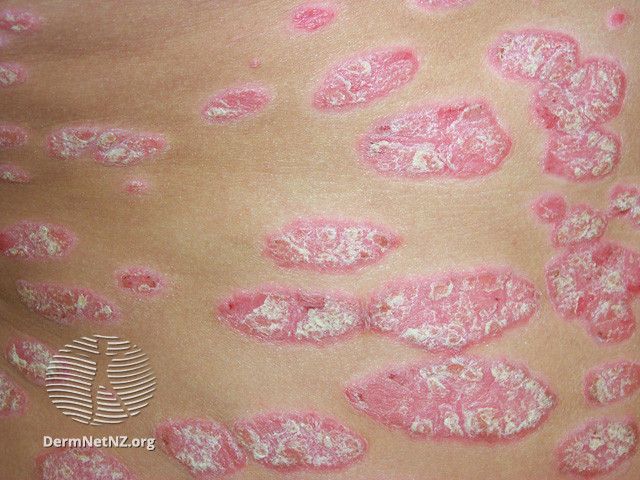- Case-Based Roundtable
- General Dermatology
- Eczema
- Chronic Hand Eczema
- Alopecia
- Aesthetics
- Vitiligo
- COVID-19
- Actinic Keratosis
- Precision Medicine and Biologics
- Rare Disease
- Wound Care
- Rosacea
- Psoriasis
- Psoriatic Arthritis
- Atopic Dermatitis
- Melasma
- NP and PA
- Skin Cancer
- Hidradenitis Suppurativa
- Drug Watch
- Pigmentary Disorders
- Acne
- Pediatric Dermatology
- Practice Management
- Prurigo Nodularis
- Buy-and-Bill
News
Article
More Images of Patients With Psoriasis Are Needed in Published Studies
Author(s):
Most studies involving the treatment of psoriasis do not contain any images of patients, a review finds.
Very few images of patients with psoriasis are depicted in published studies, according to one review. Including more images in scientific research would help to strengthen a patient’s perspective and understanding of what treatment effects can be expected.
This systemic review is published in the Journal of Dermatological Treatment.1 In this review, the researchers aimed to measure the proportion of shared clinical images in psoriasis trials.
"Patients often find it challenging to grasp the core messages of scientific manuscripts,” said Sam Polesie, associate professor at Sahlgrenska Academy, the University of Gothenburg's faculty of medicine, and lead author of the study, in a statement.2 “The clinical results are most often described in something called PASI [psoriasis area severity index] values, which is a composite score for redness, scaling, induration, and distribution on predefined body areas.”
Psoriasis is defined as a chronic immune-mediated inflammatory systemic disease, characterized by red and scaly plaques on the skin. Furthermore, the severity of psoriasis can range from mild to severe, in which advanced systemic therapies and biologics may be warranted.
In this study, randomized controlled trials involving biological agents for the treatment of psoriasis were searched from inception to October 26, 2021, using Embase, MEDLINE, and Scopus databases.
The search yielded a total of 1918 studies of which 192 were reviewed in full text, with 67 studies excluded for reasons such as wrong outcome, wrong publication type, wrong study drug, etc. In total, 152 studies with 62,871 patients were included in the review. Of these studies, 77% did not include photos of any patients at all. Additionally, the scientific manuscripts and all supplementary material featured a total of only 203 images of 60 patients, yielding an overall share rate [IQR] of 0.1% [0.3- 4.4].
Most of these patients (n = 51,857) were randomized in trials in the primary outcome. Among these patients, only 23 individuals were depicted in images. Furthermore, 5 medical journals with the highest number of randomized patients (n = 50,809) accounted for 80.8% of all individuals included in the review. These journals included the British Journal of Dermatology, Journal of the American Academy of Dermatology, Journal of the European Academy of Dermatology and Venereology, and the New England Journal of Medicine.
However, the researchers acknowledged the study had some limitations, such as being restricted to studies involving biological agents for the treatment of psoriasis, only including apremilast, ciclosporin, deucravacitinib, dimethylfumarate, and methotrexate as comparative study drugs, and being restricted to studies in the English language.
Despite these limitations, the researchers believe the study supports greater use of patient images in clinical literature and manuscripts to boost patient understanding, compared with psoriasis area severity index and/or physical global assessment scores, which can be difficult to interpret.
The researchers also acknowledged that health care professionals are usually the target audience for these scientific publications. However, a patient’s rights to shared decision-making has become increasingly important and requires a paradigm shift to bridge the gap between clinical research and a patient’s understanding of their disease and treatment.
"We hope that this systematic review can serve as an invitation to the pharmaceutical industry and other sponsors, as well as journal editors and authors, to include more images in scientific publications,” said Polesie in a following statement.2 “Including more clinical images with our original manuscripts could better support patient involvement."
References
1. Polesie S, Alinaghi F, Egeberg A. A systematic review investigating at what proportion clinical images are shared in prospective randomized controlled trials involving patients with psoriasis and biological agents. Journal of Dermatological Treatment. 2023;34(1). doi:10.1080/09546634.2023.2281261
2. University of Gothenberg. Hardly any photos of patients with psoriasis in published studies. EurekAlert. November 20, 2023. Accessed December 18, 2023. https://www.eurekalert.org/news-releases/1008573.
[This article was originally published by our sister brand, the American Journal of Managed Care.]






